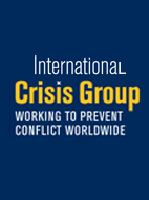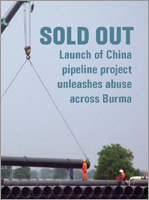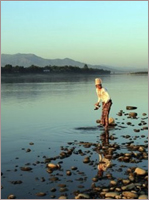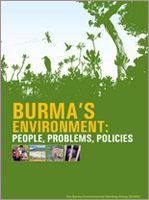|
As a service to our readers, The Irrawaddy is creating a virtual library of Burma-related reports available on the Internet. Most of these reports can be downloaded free of charge from Web sites run by various organizations.
Please note that The Irrawaddy is not the source of these materials and is not in any way profiting from this new service. Just click on the �More information� link below each brief summary to go to a Web site where you can download the report. (The Irrawaddy is not responsible for the content of external Web sites.)
If you have a report that you would like to share with our readers, please let us know by submitting details to [email protected].
 |
Myanmar: Major Reform Underway
International Crisis Group, September 2011
This briefing examines how President Thein Sein has moved rapidly to begin implementing an ambitious reform agenda first set out in his March 2011 inaugural address. Since mid-July, there has been a dramatic change of approach as he has reached out to long-time critics of the former regime, proposing that differences be put aside in order to work together for the good of the country. National League of Democracy leader Aung San Suu Kyi has seized the opportunity, meeting the new leader in Naypyitaw and emerging with the conviction that he wants to achieve positive change.
Read the full report |
|
 |
Burma's Cover up War: Atrocities Against The Kachin People
Kachin Women's Association Thailand, Ocotber 2011
This report documents atrocities committed by the Burmese Army since it broke a 17-year ceasefire with the Kachin Independence Army (KIA) on June 9. Women and children have suffered some of the worst crimes, including rape and sexual violence. 37 women and girls were raped during the first two months of the conflict; 13 of these were killed.
Read the full report |
|
 |
Sold Out : Launch of China pipeline project unleashes abuse across Burma
Shwe Gas Movement, September 06
Following recent military-rigged elections in Burma, the pace of foreign investments, particularly in the natural resource sector, is increasing. Burma's military government is allowing China to build pipelines across the country which will drain Burma of its massive natural gas reserves, dashing hopes of economic development. Building the pipelines and extracting the gas are fuelling further conflicts and abuses: battles between armed groups and the government have broken out near the pipeline route and land confiscation and forced labor has started in project areas. Despite great risks, communities are standing up and voicing their concerns and opposition.
Read the full report |
|
 |
Irrawaddy Appeal
Aung San Suu Kyi, Augest 11
In an open letter, Burmese pro-democracy leader Aung San Suu Kyi has urged the governments of China and Burma to reassess the construction of the controversial 6,000-megawatt Myitsone Dam project in Kachin State in light of its serious environmental and social consequences. She said that local people's anti-government sentiment has increased because of the project, which has displaced about 12,000 people. “To conserve the Irrawaddy is to protect our economy and our environment as well as to safeguard our heritage,” she writes. With her open letter, she has joined the growing calls for the end of the project inside and outside Burma.
Read the full report |
|
 |
BURMA'S ENVIRONMENT: PEOPLE, PROBLEMS, POLICIES
Burma Environment Working Grop, July 2011.
Burma is currently facing many threats to the natural environment and sustainable livelihoods, such as construction of large dams, oil and gas extraction, mining, deforestation, large-scale agricultural concessions, illegal wildlife trade and climate change. The majority of Burma's income comes from selling off natural resources, including billions of dollars from gas and hydropower development. Investment comes from countries within the region- most significantly China, Inida and Thailand, Malaysia, Singapore, Japan, Vietnam and Korea are also key investors looking to increase investments after the elecftions, These resource extractive investments damage the environments and treaten local resource-hased livelihoods, particularly in ethnic areas. Read the full report |
|

|
